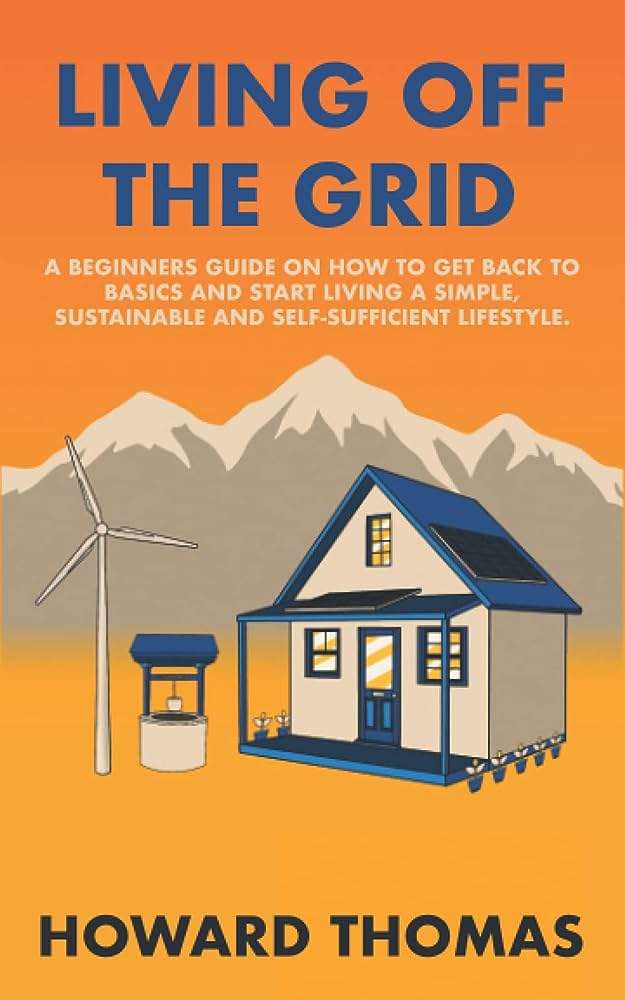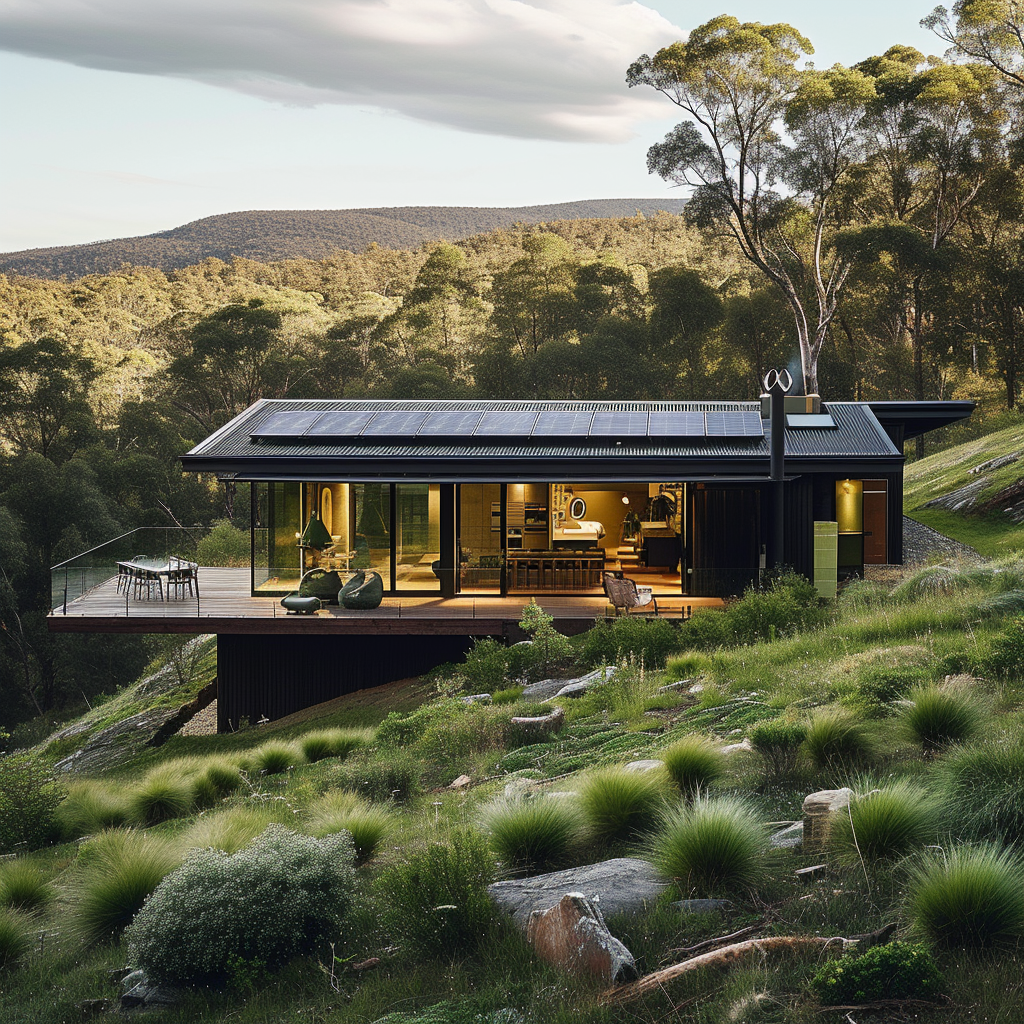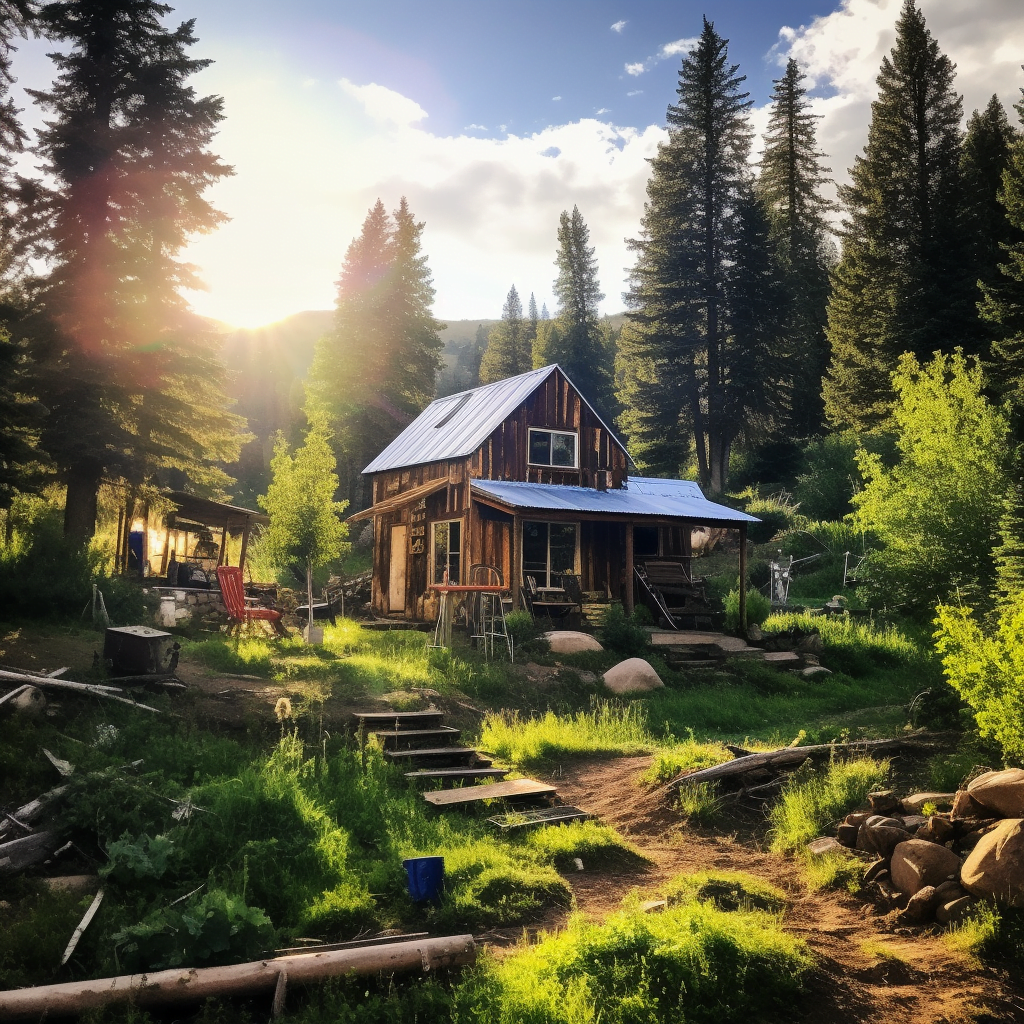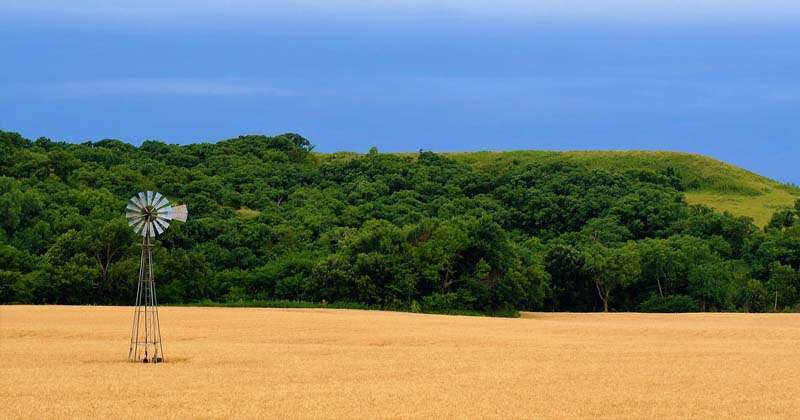In this article, you will learn everything you need to know about living off the grid. We will explore the benefits of this lifestyle, including increased self-sufficiency and reduced environmental impact. You will discover practical tips on how to generate your own power, find alternative sources of water, and grow your own food. By the end, you will have a comprehensive understanding of what it takes to live off the grid and be well-equipped to embark on this exciting journey.
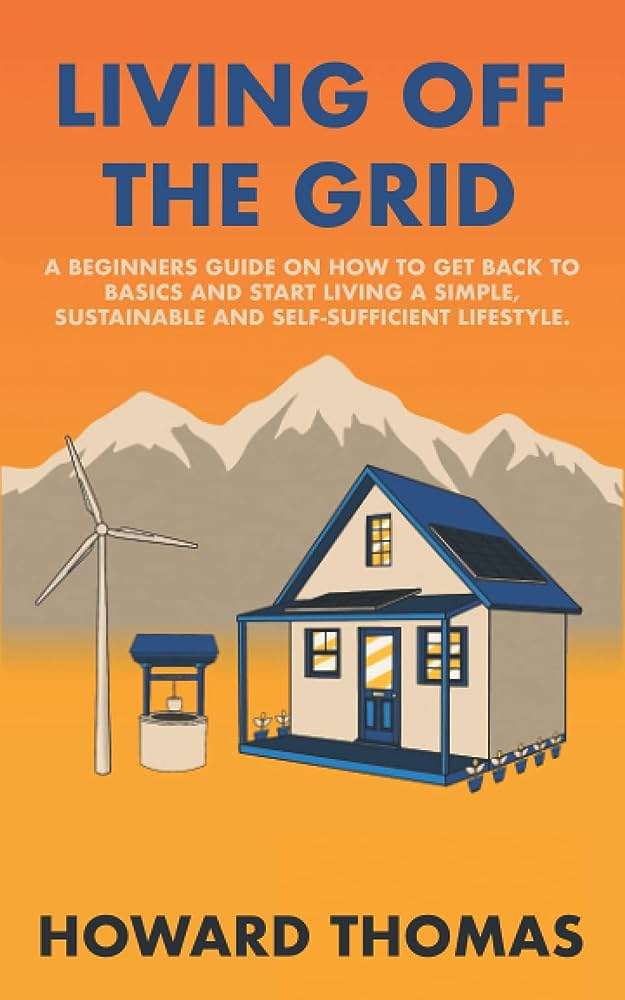
What is living off the grid?
Living off the grid refers to a lifestyle in which individuals or households operate independently from public utilities and services. It involves generating one’s own power, collecting and managing water resources, producing food, and efficiently managing waste. By disconnecting from the traditional power grid and relying on sustainable and self-sufficient methods, people who choose this lifestyle not only reduce their environmental impact but also gain a sense of freedom and resilience. In this complete guide for beginners, we will discuss the concept of living off the grid, its benefits, and provide practical insights on how to make a successful transition to this alternative way of living.
Understanding the concept
Living off the grid means living in a self-sustaining manner without depending on public utilities for electricity, water, and other essentials. It involves utilizing natural resources, such as solar energy, wind power, hydroelectric power, and biomass, to generate electricity. Additionally, it entails collecting rainwater, digging wells, and implementing water filtration systems to ensure a reliable water supply. Food production in the form of vegetable gardens and raising livestock also becomes crucial to sustain oneself. Managing waste and recycling, selecting sustainable building materials, and securing the property are other essential aspects of off-grid living.
Benefits of living off the grid
There are numerous benefits to living off the grid. First and foremost, it allows individuals to reduce their carbon footprint significantly. By relying on renewable energy sources such as solar and wind power, off-grid living minimizes greenhouse gas emissions and contributes positively to the environment. Additionally, it allows people to become more self-sufficient, providing a sense of empowerment and freedom. Living off the grid also helps to reduce monthly expenses by eliminating or significantly reducing utility bills. Furthermore, it fosters a deeper connection with nature and promotes a more sustainable and mindful way of living.
Choosing the right location
When considering a transition to off-grid living, choosing the right location is crucial. Several factors need to be considered when selecting a suitable area.
Factors to consider
Firstly, assess the availability of natural resources such as sunlight, wind, and water. These resources are essential for generating energy and harvesting water. Having an abundant and consistent supply of these resources will make off-grid living more viable.
Secondly, consider the climate and weather patterns of the area. How much sunshine and wind does the area receive throughout the year? Understanding the climate is crucial for determining the most efficient energy sources for your location.
Thirdly, research the accessibility of the area. Is the location easily accessible by road? Can emergency services and supplies be easily accessed, if needed? These considerations are vital to ensure safety and convenience.
Researching suitable areas
To find suitable areas, conduct thorough research. Online resources, forums, and local off-grid communities can provide valuable insights into locations that are well-suited for off-grid living. Make a list of potential areas and study them carefully. Take into account factors like proximity to essential services, availability of land or housing, and the overall environment.
Climate and natural resources
Assessing the climate and natural resources is crucial for off-grid living. The amount of sunlight and wind in an area determines the feasibility of solar and wind energy sources. Coastal areas may have higher wind potential, while regions with abundant sunshine are ideal for solar power generation. Additionally, water availability and quality are important considerations. Ensure that there is a consistent and reliable source of water, whether through rainfall or underground wells.
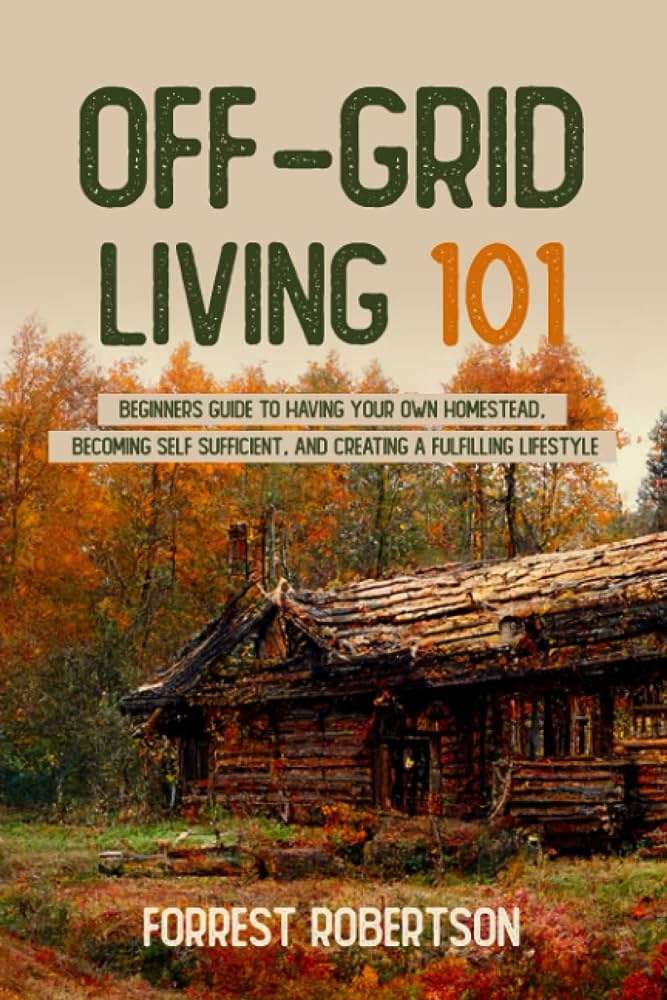
Power and energy sources
Generating power and finding alternative energy sources are integral parts of off-grid living. Relying on sustainable sources such as solar, wind, hydroelectric, and biomass energy can provide a reliable and continuous power supply.
Solar energy
Solar energy is one of the most popular and readily available sources of power for off-grid living. By harnessing the sun’s energy using solar panels, electricity can be generated and stored in batteries for use during cloudy or nighttime periods. Installing a solar power system requires an investment upfront but can lead to long-term savings and energy independence.
Wind energy
Wind energy is another viable option for off-grid power generation. Areas with consistent wind patterns can benefit from wind turbines, which convert the energy from wind into electricity. Wind turbines come in different sizes, and selecting the appropriate one depends on the available space and energy requirements.
Hydroelectric power
If you have access to a water source with flowing water, such as a stream or river, hydroelectric power can be a reliable energy source. By utilizing the force of moving water, a hydroelectric system can generate electricity. However, this option may not be feasible for all locations.
Biomass and biofuels
For those living in wooded areas or with access to agricultural waste, biomass and biofuels can be utilized as an alternative energy source. Biomass, such as firewood or wood pellets, can be burned to create heat or electricity. Biofuels, such as biodiesel or ethanol, can be produced from plant matter and used in generators or vehicles.
Water supply and management
Ensuring a reliable water supply is vital for off-grid living. Here are some methods to collect and manage water resources.
Collecting rainwater
Collecting rainwater is a simple and effective method to secure a water supply. Installing a rainwater collection system involves collecting rain runoff from roofs or other surfaces and storing it in tanks or reservoirs. This collected water can be used for a variety of purposes, including drinking, cooking, irrigation, and livestock watering.
Digging wells
In areas with limited rainfall, digging wells may be necessary. A well provides access to groundwater, which can be pumped and used for various purposes. It is essential to consult with professionals and follow local regulations when digging a well to ensure the water quality and proper installation.
Water filtration and purification
Regardless of the water source, implementing filtration and purification systems is crucial to ensure the water is safe for consumption. The off-grid market offers a variety of options, such as gravity-fed filters and ultraviolet (UV) sterilization systems, that can remove contaminants and bacteria from water.
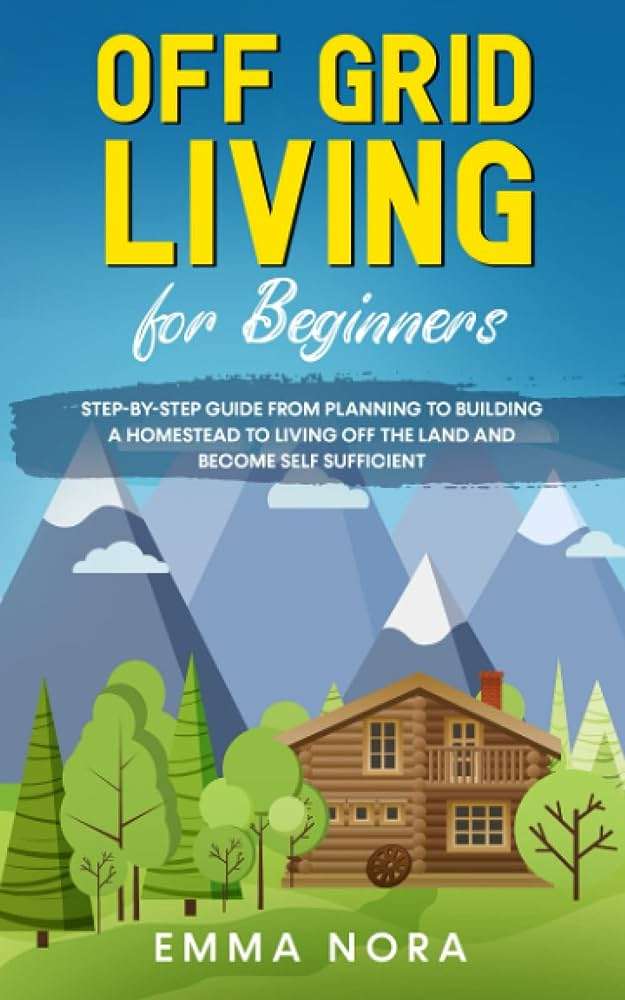
Food production and self-sustainability
Growing your own food is a cornerstone of off-grid living. Here are some methods to start your own self-sustainable food production.
Starting a vegetable garden
One of the most rewarding aspects of off-grid living is the ability to grow fresh and nutritious produce. Starting a vegetable garden allows you to have control over the quality of your food and reduce reliance on external food sources. Consider factors such as soil quality, sunlight exposure, and climate when planning your garden. Start with easy-to-grow vegetables and gradually expand your garden as you gain more experience.
Raising livestock and poultry
In addition to vegetables, raising livestock and poultry can provide a reliable source of protein and other essential nutrients. Chickens, rabbits, goats, or even bees can be incorporated into an off-grid lifestyle. Ensure you have proper shelter, space, and access to feed and water for your animals. Research the local regulations and best practices for animal welfare before starting.
Preserving food
To ensure a year-round supply of food, preserving techniques such as canning, drying, and fermenting can be adopted. Canning allows for the long-term preservation of fruits, vegetables, and meats by sealing them in jars. Drying fruits, vegetables, and herbs removes moisture and extends their shelf life. Fermenting vegetables, such as sauerkraut and pickles, enhances their nutritional value while providing a tangy flavor.
Managing waste and recycling
Proper waste management and recycling are essential for a sustainable off-grid lifestyle.
Composting
Composting is an effective way to manage organic waste and create nutrient-rich soil for your garden. Composting involves collecting organic kitchen scraps, yard waste, and other biodegradable materials and allowing them to decompose. The resulting compost can be used as a natural fertilizer for your garden, reducing the need for chemical-based fertilizers.
Greywater recycling
Greywater refers to the wastewater produced from activities such as showering, dishwashing, and laundry. Implementing a greywater recycling system allows you to repurpose this water for non-potable uses such as irrigation and flushing toilets. This reduces the strain on freshwater sources and promotes a more sustainable water management system.
Reducing waste
One of the fundamental principles of off-grid living is reducing waste. Avoid single-use items and instead opt for reusable alternatives. Embrace minimalism and only acquire items that are necessary and have a long lifespan. Repurpose and repair items whenever possible. By reducing waste, you contribute to a healthier environment and a more sustainable future.
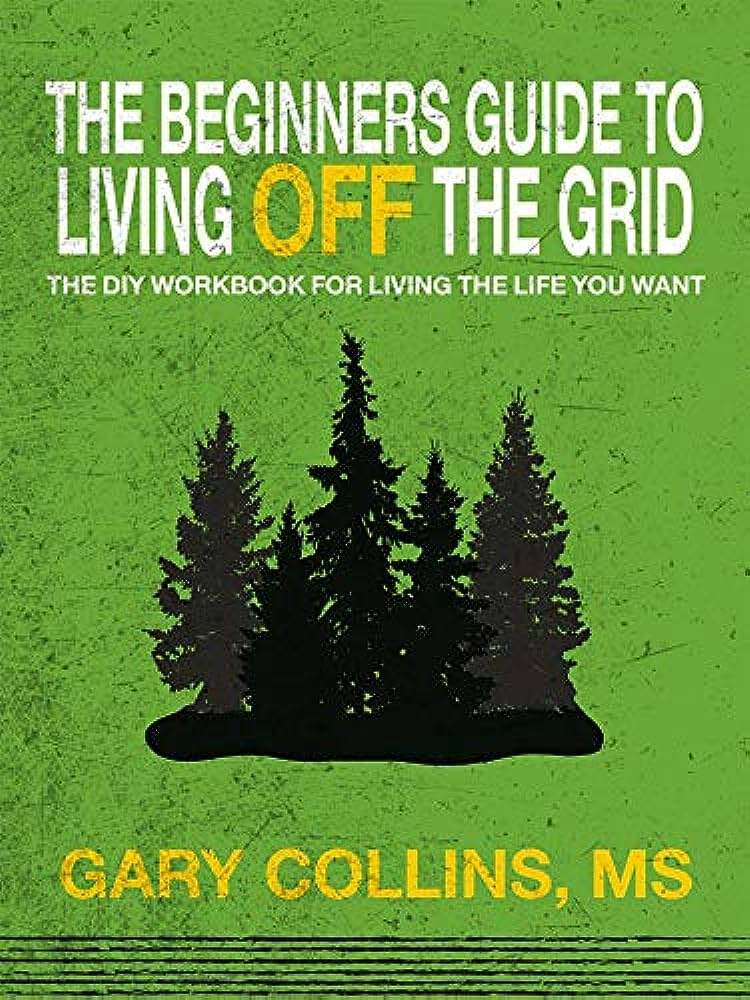
Building and shelter
When living off the grid, selecting sustainable building materials and designing energy-efficient homes is important.
Choosing sustainable materials
When constructing or renovating your off-grid home, consider opting for sustainable building materials. Materials such as reclaimed wood, bamboo, recycled metal, and natural stone are environmentally friendly options. These materials are renewable, durable, and have a lower environmental impact compared to conventional building materials.
Designing energy-efficient homes
Consider energy-efficient design principles when planning your off-grid home. Features such as passive solar design, proper insulation, efficient windows and doors, and natural ventilation can dramatically reduce energy consumption. Taking advantage of natural light and utilizing thermal mass can also help maintain a comfortable indoor temperature without relying heavily on heating or cooling systems.
Off-grid heating and cooling systems
Heating and cooling can be achieved through various off-grid methods. Wood-burning stoves, passive solar design principles, and geothermal heating and cooling systems are popular options for off-grid living. These methods utilize renewable resources or energy from the earth to provide a comfortable living environment without relying on traditional heating and cooling systems.
Personal and home security
Ensuring personal and home security is important, especially when living off the grid. Here are some considerations to keep in mind.
Securing the property
Securing your property helps protect your off-grid lifestyle and personal belongings. Installing perimeter fencing, security cameras, and motion sensor lights can deter potential intruders. Access control measures such as gates and locks should also be implemented to maintain the privacy and safety of your property.
Home defense strategies
In remote areas, it is essential to be prepared for potential security threats. Implementing home defense strategies such as creating a security plan, installing door and window reinforcements, and having emergency communication devices can help protect you and your property in case of emergencies.
Emergency preparedness
Living off the grid often means being further away from emergency services. It is crucial to have an emergency preparedness plan in place. This includes having a well-stocked first aid kit, maintaining a supply of non-perishable food and water, and having emergency backup power sources such as generators or solar-powered battery systems. Stay informed about local emergency services and have a communication plan in case of disruptions.
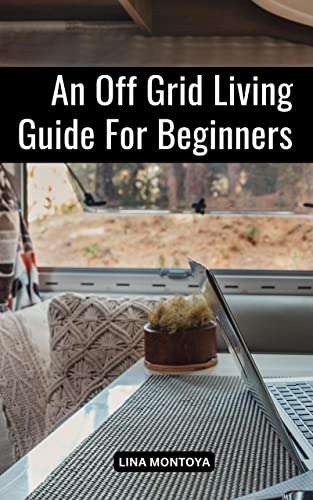
Community and social aspects
Living off the grid does not mean living in isolation. Building a supportive network, practicing bartering and trading, and sharing resources are essential aspects of the off-grid community.
Building a supportive network
Connecting with like-minded individuals who also live off the grid can provide a sense of community and support. Online forums, local off-grid communities, and social media groups can help you connect with others who share similar values and experiences. Sharing knowledge, resources, and advice can greatly enhance your off-grid lifestyle.
Bartering and trading
Bartering and trading are traditional methods of exchanging goods and services without using money. In an off-grid community, bartering can be a valuable way to acquire items or services you need while also contributing your own skills or goods. For example, if you have excess vegetables from your garden, you can trade them for eggs from someone who raises chickens.
Sharing resources
Sharing resources within the off-grid community creates a sense of interdependence and cooperation. Sharing tools, equipment, or even transportation can help minimize individual costs and reduce the overall environmental impact. Pooling resources can also enable access to larger-scale projects, such as community gardens or renewable energy initiatives.
Conclusion
Living off the grid offers countless benefits, from reducing environmental impact to gaining self-sufficiency and resilience. By understanding the concept of off-grid living, choosing the right location, implementing sustainable practices for power generation, water management, food production, waste management, and building design, you can embark on a rewarding journey towards a more sustainable and fulfilling lifestyle. While the transition may require initial effort and investment, the long-term rewards and the sense of freedom gained make it a worthwhile endeavor. Whether you are seeking to minimize your ecological footprint, become more self-sufficient, or simply enjoy a closer connection with nature, off-grid living provides a complete guide for beginners to make a successful transition towards a more sustainable way of life.

